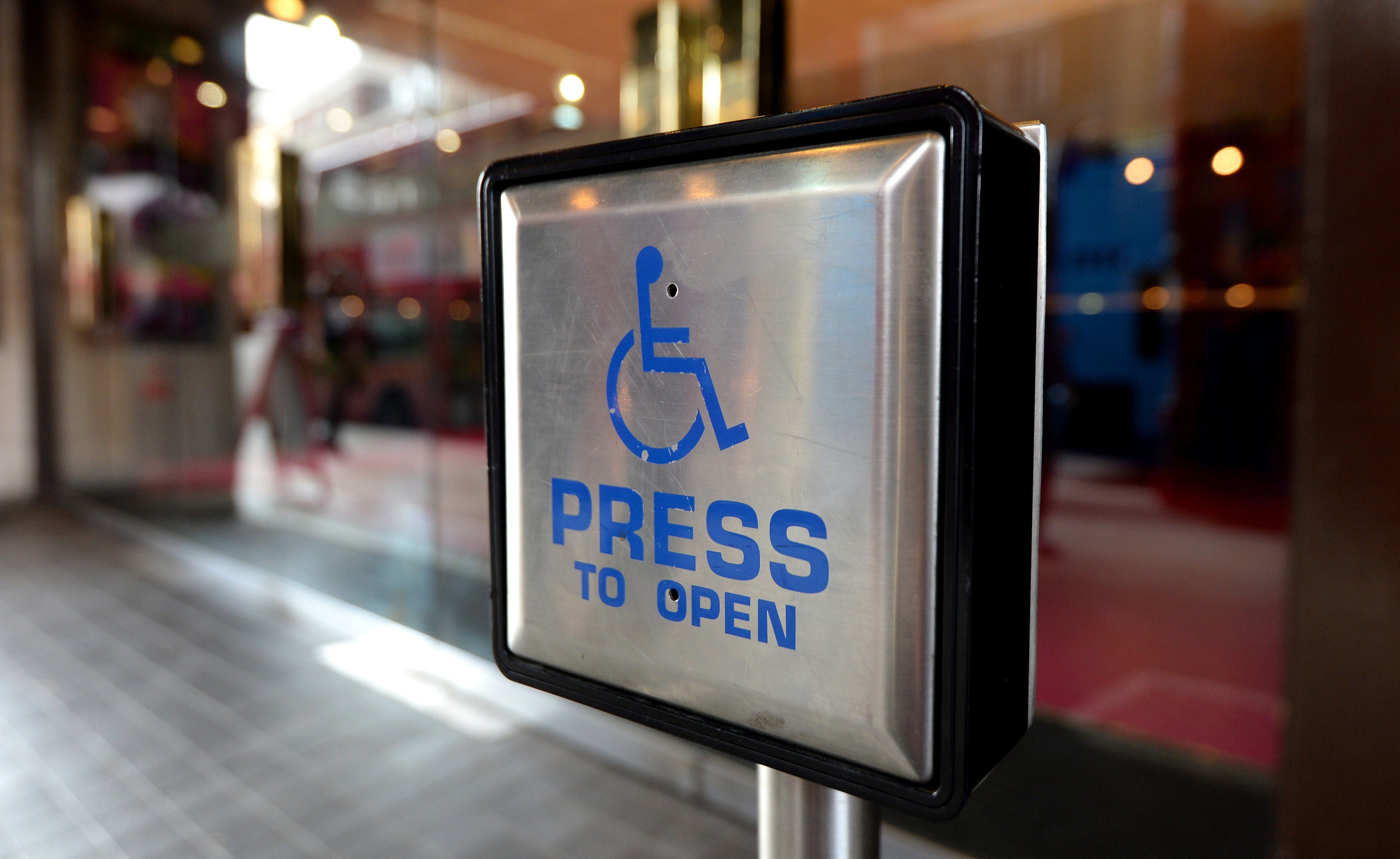Drivers delivering cars for taxpayer-funded disability scheme ‘paid as little as £2.30 an hour’
Exclusive: Law firm Leigh Day plans to launch a legal claim against BCA this week on behalf of potentially thousands of drivers

Your support helps us to tell the story
From reproductive rights to climate change to Big Tech, The Independent is on the ground when the story is developing. Whether it's investigating the financials of Elon Musk's pro-Trump PAC or producing our latest documentary, 'The A Word', which shines a light on the American women fighting for reproductive rights, we know how important it is to parse out the facts from the messaging.
At such a critical moment in US history, we need reporters on the ground. Your donation allows us to keep sending journalists to speak to both sides of the story.
The Independent is trusted by Americans across the entire political spectrum. And unlike many other quality news outlets, we choose not to lock Americans out of our reporting and analysis with paywalls. We believe quality journalism should be available to everyone, paid for by those who can afford it.
Your support makes all the difference.Drivers delivering cars for a taxpayer-funded disability scheme say they are paid as little as £2.30 per hour – just over a quarter of the legal minimum wage.
The drivers work for British car Auctions (BCA), the group that owns Webuyanycar, which has a contract with the Motability scheme to deliver and collect cars leased to drivers with disabilities. Motability receives its income directly from the Department for Work and Pensions (DWP).
Motability is one of BCA’s key clients, alongside BMW, Volkswagen and Mercedes. BCA also supplies vehicles to Cazoo, the online used-car platform which is about to list on the stock market valued at $7bn (£5bn), making it one of the UK’s most valuable tech startups.
Law firm Leigh Day plans to launch a legal claim against BCA this week on behalf of potentially thousands of drivers who may have been wrongly denied basic workers’ rights. It is the latest in a string of claims against so-called gig economy companies in the wake of a landmark Supreme Court ruling against Uber.
While BCA’s chief executive Avril Palmer-Baunack collected £29m in salary and bonuses in 2018, drivers are often paid just £60 for shifts which they say can stretch to 13 hours, equating to an hourly rate of just £4.61.
When travel expenses are deducted this frequently drops much lower, drivers allege. They say they feel “degraded and exploited” by the rates of pay but have little choice but to accept the terms.
Leigh Day solicitor Gabriel Morrison said BCA drivers have a “strong and winnable” claim. “As the Supreme Court in Uber pointed out, employment laws are designed to protect vulnerable workers from unfair treatment and low pay,” he said.
“Despite these laws, BCA have deprived their drivers of holiday pay and national minimum wage rights for a long time.”
BCA maintains that it has acted lawfully and that its drivers are independent contractors so do not have to be paid the minimum wage. The company did not dispute the allegation that drivers’ pay averaged between £4 and £5 per hour.
Treating drivers as contractors allows BCA to pay less tax and National Insurance Contributions than if drivers were recognised as workers. Meanwhile, disabled drivers who use the Motability scheme, which pays BCA, have seen their benefits cut in recent years as the government has sought to save money.
The DWP declined to comment directly on the pay allegations or commit to investigating the matter.
A spokesperson said: “It’s illegal not to pay the minimum wage and we are clear that no employer should short-change their workers, irrespective of size or business sector.”
Motability Operations Limited also declined to comment on the allegations but said it operates a “robust supplier selection and review process” and regularly engages with its suppliers “to give us confidence that they meet all the relevant employment regulations and requirements”.
What does the Motability scheme do?
Motability provides cars, wheelchair-accessible vehicles and scooters to people who need them. Eligible people can use their mobility allowance to pay the leasing cost for the vehicle and the government pays it directly to Motability Operations Limited, the company that leases the cars.
Its service has been described as “excellent” by the National Audit Office and is seen as a lifeline for many people with disabilities. However the scheme has also been criticised for high executive pay and making excessive profits which have been held in reserve rather than being reinvested.
BCA drivers pick up cars at the end of their leases, assess them for damage and deliver them to dealerships and depots for re-sale.
Cazoo, which recently appointed former Labour MP Luciana Berger as board member for environmental, social and governance issues, said: "We are not aware of the practices you refer to, do not believe it is acceptable for any business to pay anything less than the statutory minimum wage and take these matters very seriously. We are working to ensure that our entire supply chain meets all requirements.”
BCA may not be a household name but if you have bought a second-hand car in the UK during the past decade there is a strong chance that it has been handled by the company.
Behind the scenes, BCA dominates the UK’s £50bn used-car market. It purchases vehicles from individual sellers through Webuyanycar and has exclusive deals with manufacturers including BMW, Mercedes and Volkswagen to buy cars when customers’ leases come to an end.
It sells around 1 million cars each year through its auctions, supplying dealerships across the country and its own online retail platform, Cinch.

BCA’s army of drivers assess cars for damage before dropping them off to customers or depots and then travelling long distances home on public transport.
Pay documents reveal jobs paid at BCA’s standard rate of £20 each which would take more than four hours to complete, according to Google Maps. Drivers claim that the contract terms make it “impossible” to earn the minimum wage.
John Donovan began working as a driver for BCA last year when his work in musical theatre disappeared during the pandemic.
He described the pay as “very exploitative” and “completely unacceptable”.
He recently received £20.60 after travel expenses for a nine-hour day – a rate of £2.29 per hour. “I complained but they just repeat the mantra that you are a self-employed contractor responsible for your own travel expenses,” he said.
Mr Donovan estimated that his total pay over several months worked out at £5 per hour, far below the legal minimum of £8.91 for workers.
One driver who previously worked as an IT project manager said he felt he had no choice to continue working for BCA but that doing so made him feel “helpless and degraded due to low pay”.
“You can’t do anything about it as you need the money and have no other options,” he said. “Drivers are just trying to survive and provide for their family.”
He said he believed that BCA “knows drivers are vulnerable… you are dispensable. Covid has made it worse”.
The company expects drivers to complete between one and three jobs per day, meaning payment is typically between £20 and £60. All new drivers must complete three days of training at a daily rate of £45, or £5.62 an hour. Drivers are only paid for training if they go on to complete 40 jobs.
A BCA spokesperson said drivers have “absolute freedom” to reject individual jobs or negotiate new ones with the company.
Drivers argue that this flexibility is an illusion and that they accept jobs on BCA’s terms or get no work. Jobs are often handed out on the evening before they must be carried out.
A landmark Supreme Court case in February which ruled that Uber drivers were workers has opened the floodgates to claims against companies that allegedly use false self-employment to deny staff workers’ rights.
Paul Jennings, a partner at law firm Bates Wells, who represented drivers in the Uber case, said BCA’s training documents and contract bore “all the hallmarks” of direction and control which indicates drivers should be classified as workers.
“The Uber judgment is emphatic and sets binding precedent for these types of cases,” he said.
“All that the [BCA] drivers need to establish is that they personally need to do the work, which they do. There is personal service, there is a contract and there is a high degree of control and prescription. There are strong and credible claims for these individuals. There are clear parallels here with the Uber case.”
He added that other factors could strengthen the drivers’ claim, including the fact that they rely on the company for a living, they wear BCA-branded badges and there are strict guidelines about how they must carry out the role.
BCA tells drivers which cars to pick up each day, gives them a route to take and determines the pay. The company supplies drivers with iPads, company ID badges, branded high-vis jackets, and company cards for buying fuel.
Responding to the allegations, a BCA spokesperson said drivers were provided with “limited equipment in order that they can provide the services to us”.
The company added: “There is no obligation on a self-employed contractor to provide a personal service to us. The self-employed contractors have the right to use a substitute to provide the services on their behalf.
“The self-employed contractors are then responsible for their substitute including responsibility for making any payments to the substitute. We have no contractual, financial or legal relationship with their substitute.”



Join our commenting forum
Join thought-provoking conversations, follow other Independent readers and see their replies
Comments